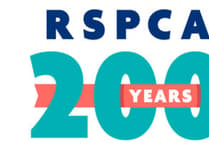South Hams has one of the lowest happiness scores in a UK-wide survey, reflecting a national dip in wellbeing following the Covid pandemic.
The survey by the Office for National Statistics (ONS), shows that South Hams ranked the lowest out of Devon’s 10 districts with a score of 6.9 out of 10 - the lowest since records began in 2011.
Worse still, South Hams had the dubious honour of coming 10th in the list of the UK’s ‘unhappiest’ districts.
To obtain the data, the ONS polled 320,000 people across all four countries in the UK, asking them to rank their happiness, life satisfaction, anxiety and sense of worth out of a score of 10.
The survey is carried out every year, and for 2023 it covered the period from April 2022 to March this year.
Although replies are relatively subjective, the survey’s four questions were 'How satisfied are you with your life nowadays?', 'to what extent do you feel the things you do in your life are worthwhile?', 'how happy did you feel yesterday?' and 'how anxious did you feel yesterday?'.
The ONS noted that the rates of personal well-being had been affected by the pandemic. Significantly, South Hams reported its highest ever score (8.3), just before the start of the pandemic in 2019-2020, but since then the rating has gradually declined, reflecting a more negative outlook on scores related to life satisfaction, sense of worth, happiness and anxiety.
By contrast, West Devon came top this year with a score of 7.9, followed by East Devon with 7.8.
Residents in the Shetland Islands reported being the happiest of all, with a score of 8.22. At the opposite end of the spectrum, Adur in West Sussex came bottom, with residents giving their district and average score of 6.16.
Happiness scores down
Excluding the first year of the pandemic, average happiness scores in the UK (7.39 out of 10) were the lowest since 2013/14.
The survey found that average ratings of personal well-being in the UK “have declined across all measures in the year ending March 2023”.
Additionally, adults with “very bad” self-rated health reported the highest proportion of poor well-being across all measures, with more than half (57.4 per cent) reporting high levels of anxiety.
A greater proportion of adults aged 50-54 and 55-59 years reported low levels of life satisfaction (7.9 per cent for both groups) and low levels of happiness (10.3 per cent and 10.9 per cent, respectively).
A greater proportion of women also reported high levels of anxiety than men, over a quarter (26.6 per cent) of women, compared with one in five men (20 per cent).
However, the ONS noted the lack of statistical significance in changes in the devolved countries could be due to less data being collected, concluding that there was less certainty in its estimates.
Data also showed that those reporting low levels of wellbeing were more likely to be suffering from ‘very bad' health, have a disability, be separated or have no qualifications.
People living in care homes or other non-household situations were not represented in the survey.




